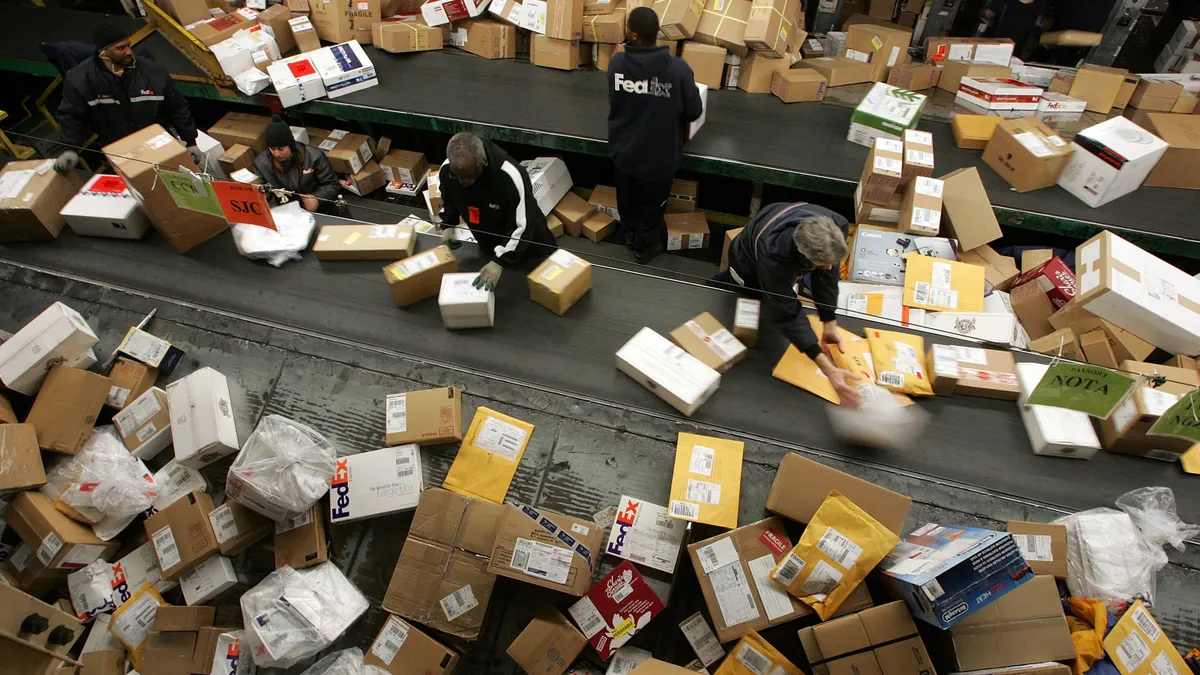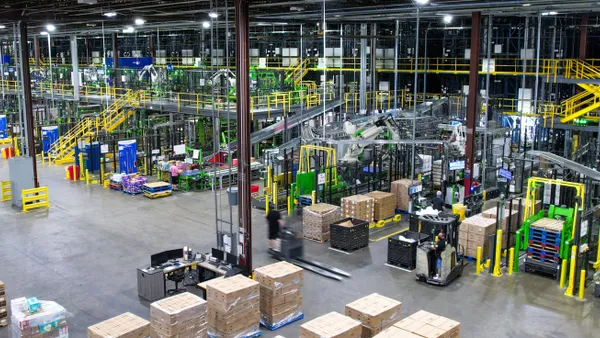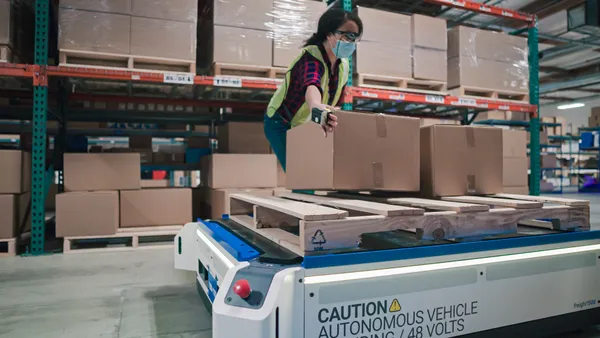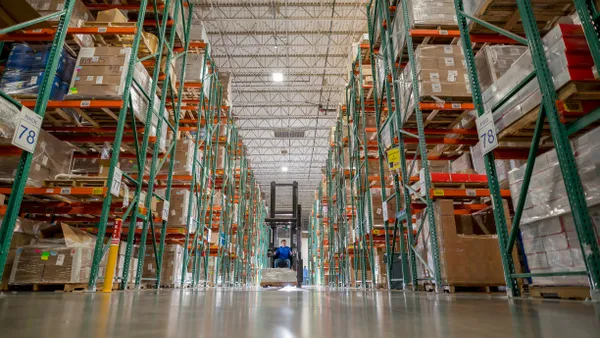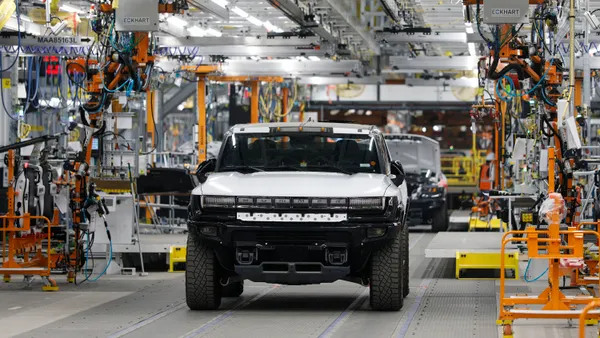Dive Brief:
- Nine in 10 supply chain leaders say they need to increase hiring to meet peak season demand, and 47% aim to attract and retain employees by paying higher salaries or wages before the end of 2021, according to an August survey from GlobalTranz and Edelman.
- The responses came from 200 U.S.-based supply chain leaders and managers at companies with 500-plus employees. Their plans to ramp up hiring come as July's preliminary average hourly earnings for warehousing and storage employees was already at a record high of $23.08, according to the Bureau of Labor Statistics.
- "While supply chains have proven resilient and adaptable over the course of the last 18 months, a strain on available resources and increasing costs are a cause for concern," GlobalTranz said in a news release. "Issues around workforce availability and material shortages are likely to persist well into 2022 as companies make moves to address them in the coming months."
Dive Insight:
Major employers have reported hiring difficulties in recent months while attempting to keep pace with a snapback in U.S. consumer demand. Hormel Foods President and CEO Jim Snee said on the company's Q3 earnings call Thursday that there was "a drastic step-up in industry-wide operational challenges caused by labor shortages," adding that employment levels have a direct impact on how much the company is able to produce.
"This has impacted both our facilities and the operations of supplier and logistics partners," Snee said. "This has created a very complex operating environment, which led to an inability to fully meet customer demand."
It's this environment in which companies plan to hire tens of thousands of supply chain employees to meet the increased operating strain of peak season.
Compared to the 2020 peak season, 76% of the GlobalTranz and Edelman survey's respondents expect higher revenues in 2021, and about 30% said 2021 will be more challenging in terms of meeting demand and keeping deliveries on time.
Many companies are courting potential workers with higher wages.
"We're spending a lot of money on signing and incentives," said Amazon CFO Brian Olsavsky on the company's Q2 earnings call. "And while we have very good staffing levels, it's not without cost. It's a very competitive labor market out there, and certainly the biggest contributor to inflationary pressures that we're seeing in business."
Businesses are also touting other employee perks before the holidays exacerbate labor shortages. Walmart, which is looking to hire 20,000 supply chain workers for the holiday season, has highlighted the opening of six new academies that provide specialized supply chain training for associates. Dollar Tree emphasized a safe working environment and tuition reimbursement ahead of a recent nationwide warehouse hiring event.
But warehouses are also competing with in-store, customer-facing positions that have seen wages increase as well. Warehouse workers are taking notice, Raj Patel, senior director of 3PL global industry strategy at Blue Yonder, said in August.
"A lot of the folks that had left ... are saying, 'Why would I go make $16 an hour in a hot warehouse, when I can make $15 at Costco?'" Patel said.
This story was first published in our weekly newsletter, Supply Chain Dive: Operations. Sign up here.



